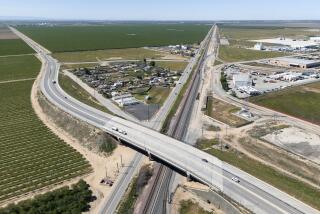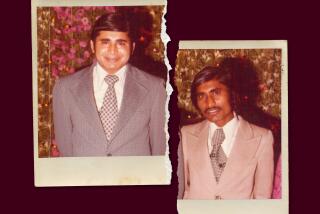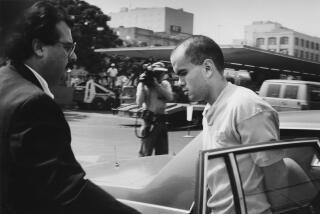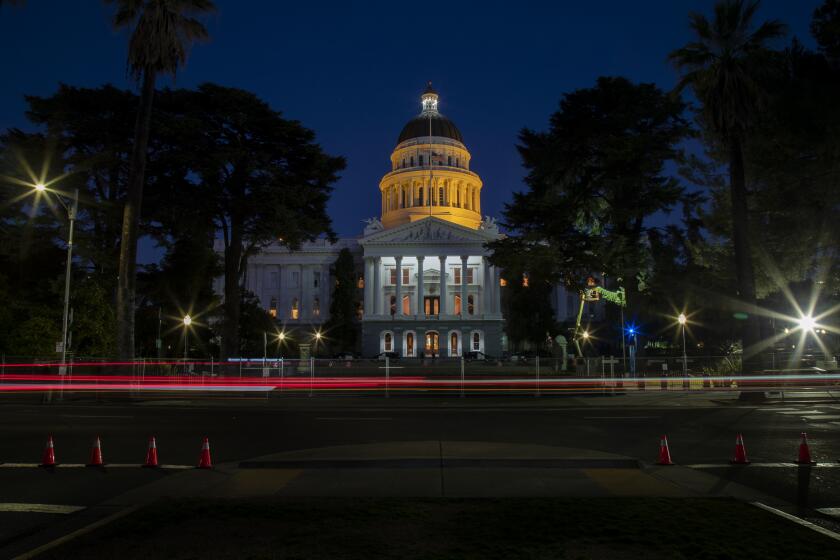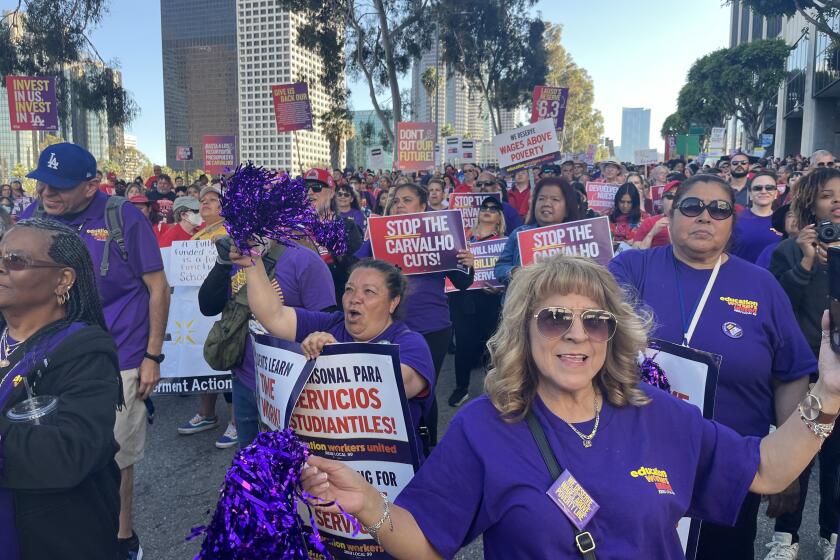Doctors Offer Time, Advice at Camp Clinic for Homeless
Robin Roulo had a hunch she would have her baby in September, but wanted the doctor to tell her for sure. She also wanted “some ointment or something” to rub on her swollen legs and feet, oozing with lesions.
“I’ve been living out here in this camp three weeks, sleeping in a tent. I guess I’m gonna have to know when this baby is going to be born, so I thought I better see a doctor,” Roulo said. “I usually don’t like to go to doctors, but since he was right here, I figured it was now or never.”
Roulo and about 350 other homeless people at the city’s “urban campground” sought medical attention Saturday for ailments that have troubled them for months, even years, during a daylong medical clinic.
About 25 Los Angeles-area doctors and 20 nurses converged at the dirt campsite on South Santa Fe Avenue to offer free treatment beneath canopies, at picnic tables and in makeshift exam rooms inside trailers.
The clinic was dubbed “Mission Physician” and was organized by a St. Petersburg, Fla., doctor who had read accounts of the need for medical services at the site. Salvation Army officials running the camp, county health officials and private doctors joined in, and Los Angeles-area hospitals donated medical supplies.
From 10 a.m. to 4 p.m., homeless people trudged from their tents and across the dirt to wait in line at a “triage” center beneath a canopy, where nurses took blood pressure and conducted medical interviews.
Men complained of stomach problems, back aches, chest pains. Several sought treatment for healing stab wounds. Mothers asked for medicine to treat their children’s coughs, ear aches, head lice. One woman wanted to find out why she felt severe pain in her breasts. A 70-year-old, toothless woman said she came “to get some teeth.”
About 50 people, with the most serious ailments--fractures, chest pains, eye infections--were sent to the Weingart Center medical clinic on Skid Row for treatment. One man was hospitalized because of stomach bleeding.
Treatment Given
The majority of homeless, however, were given antibiotics, non-narcotic pain killers, a dose of advice from doctors and an appointment to visit the H. Claude Hudson Comprehensive Health Clinic, the county facility that serves the inner city area.
Dr. Daniel S. Stein, who organized the clinic, said the one-day effort “took care of the urgent, desperate needs of people without access to medical care.” And the co-chairman of the clinic, Dr. Peter Vash of Century City, said “at least we can show them we cared for one day. At least tonight the people will feel better.”
Several other doctors were frustrated, however, saying that one day of medical treatment will not do much to improve overall health.
“The trouble is that there is really not much I can do but a quick exam,” said Dr. Barry J. Brock of Cedars-Sinai Medical Center. He examined eight pregnant women, none whom had sought prenatal care.
Swollen and Sore Legs
During her examination on a folding table covered with a blanket, Roulo asked Brock why her legs were swollen and sore.
“Because you’re pregnant and because you keep sticking needles in them,” he said. “I think you should get blood tests for AIDS.”
“But I don’t use anyone else’s needles,” Roulo said.
The 34-year-old woman was given vitamins and a doctor’s slip verifying that she is pregnant so that she could apply for Medi-Cal benefits for her baby.
“It’s a grim scene here,” said Dr. William Boelter, a pediatrician at County-USC Medical Center. “All we can hope to do is treat a few minor things and hope the people will continue to seek health care.”
But for Guadalupe Comacho, 42, her daughter’s visit with Boelter meant that the child’s ear infection would be treated with antibiotics and she could wash out her son’s head lice with medicated shampoo.
‘Helped Us Very Much’
“It’s very hard for me to get to the doctor,” the mother of six said. “This service helped us very, very much.”
Charles Williams, 40, waited to see a psychologist because “I want to ask him why I keep getting drunk. I’m going to have to stop drinking if I want to stop living on the street.”
Hoping to provide more medical service to the homeless, a group of Los Angeles doctors, not involved with Stein, announced late last week that they are attempting to garner the funds to start up a “mobile medical unit” in the Skid Row area.
More to Read
Start your day right
Sign up for Essential California for news, features and recommendations from the L.A. Times and beyond in your inbox six days a week.
You may occasionally receive promotional content from the Los Angeles Times.
